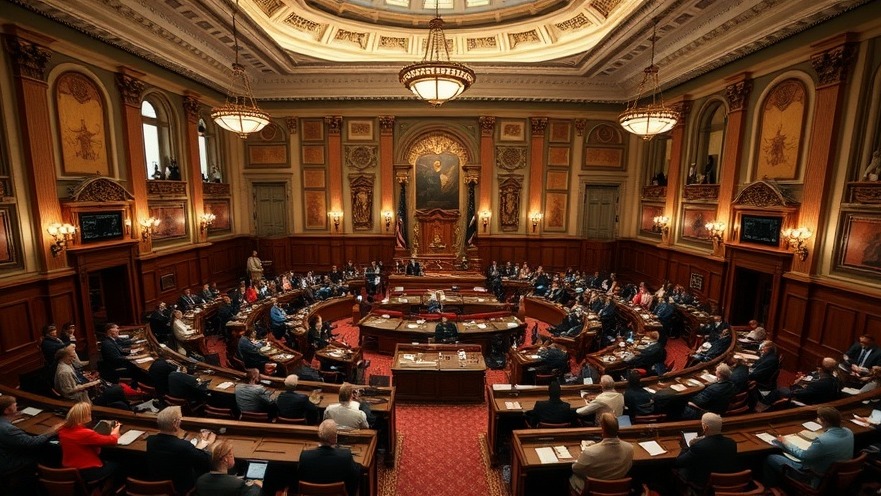
Texas House Committee Takes Action on Flood Response Bills Amid Quorum Crisis
In a critical meeting held on August 5, 2025, members of the Texas House special committee on disaster preparedness convened at the Capitol Extension in Austin to discuss five crucial flood response bills aimed at addressing the ramifications of the recent catastrophic flooding in Central Texas. Despite current state political unrest, including a quorum break instigated by House Democrats, the committee chair, Rep. Ken King, R-Canadian, assured constituents that vital legislative work would not stop.
Addressing Urgency in Flood Recovery Legislation
The committee discussed proposed legislation designed to better manage flooding, streamline disaster responses, and improve emergency preparedness across Texas. Among the bills considered are:
House Bill 1: This bill aims to establish training programs for justices of the peace and license emergency management coordinators, creating a robust framework for managing disaster situations efficiently.
House Bill 2: This bill proposes the formation of a Texas Interoperability Council focused on ensuring effective communication during emergencies through coordinated efforts across local governments.
House Bill 18: Aimed at expanding state broadband capabilities to enhance communication infrastructure during disasters.
By addressing these pressing needs, lawmakers aim to ensure a more coordinated disaster response that could save lives in future emergencies.
The Impact of Current Political Dynamics
The committee meeting's urgency was amplified by the notable absence of many House members, especially Democrats, who left the state to thwart the Republican-drafted congressional map, which they claimed would empower gerrymandering. This walkout starkly illustrates the ongoing political tensions in Texas. Rep. Joe Moody, D-El Paso, voiced concerns regarding the lack of expert presence from the governor’s office and state agencies to provide critical insights during the discussions.
“No games should be played with this topic,” Moody expressed, indicating the importance of immediate action as lives were at stake. Such political maneuvering can potentially delay legislative progress on flood response initiatives.
A Call for Comprehensive Disaster Management
The committee’s commitment to moving forward with these legislative proposals reflects a growing imperative for comprehensive disaster management plans amid increasing extreme weather events in Texas. As climate change becomes a significant factor, it underscores the need for permanent and effective solutions to disaster preparedness and response.
Further, the committee aims to engage with local governments to understand better what can be done within existing legislative frameworks and what requires new measures. The potential for immediate executive action looms large as the state grapples with recovery from recent disasters.
Public Involvement and Community Support in Disaster Preparedness
Engagement from the community will be essential as Texas lays the groundwork for robust flood response strategies. Efforts will be underway to enhance public awareness around preparedness and resilience against flooding disasters. Programs will encourage local volunteer organizations to register and get credentialed to assist in disaster response efforts, fortified by legislation aimed at establishing a clearer pathway for public involvement.
This community-centric approach not only strengthens response capabilities but also cultivates a sense of collective responsibility, vital for dealing with future challenges posed by flooding.
Conclusion: A Path Forward for Texas Flood Preparedness
The outcomes of these proposed flood relief bills are critical if Texas is to effectively manage its response to future disasters. As discussions unfold amidst political challenges, it is essential for lawmakers and the community to work collaboratively to champion resilience strategies that safeguard lives and livelihoods against the increasing threats of flooding in the region.
With this context established, now more than ever, Texas residents must stay informed and engaged in local legislative developments regarding disaster preparedness. The path forward relies not only on politicians but also on active community involvement to ensure adequate responses to future threats.
 Add Element
Add Element  Add Row
Add Row 



Write A Comment